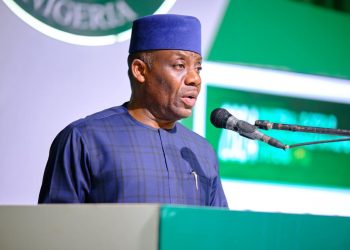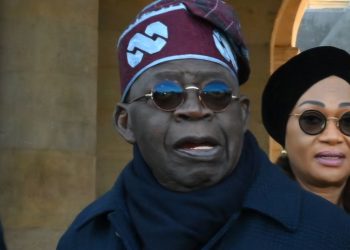The Central Bank of Nigeria (CBN) yesterday disclosed that it had granted approval to Deposit Money Banks (DMBs) on their request to provide financial accommodation to state governments to enable them pay the backlog of salaries of workers.
A statement by the apex bank indicated the approval was sequel to the decision by National Economic Council (NEC) at its meeting of 29th June, 2015 requesting it, in collaboration with other stakeholders, to appraise and consider ways of liquidating the outstanding staff salaries owed by state and local governments nationwide.
According to CBN, the conditions for accessing the loan facility include, resolutions of the State Economic Council authorising the borrowing and State House of Assembly consenting to the loan package, as well as issuance of Irrevocable Standing Payment Order (ISPO) to ensure timely repayment.
The bank stated further that out of the 27 states involved, funds had been disbursed to two states namely, Zamfara and Kwara states that met the requirements as agreed with their respective banks.
It also assured that efforts would be made in the coming days to conclude disbursements to other states so that all outstanding salaries to civil servants could be fully paid.
It would be recalled that early July, the President had approved the release of N713.7 billion intervention funds for the state to pay workers’ salaries.
The bailout was part of a three-pronged relief package intended to end workers’ plight, particularly in over 20 states, where salaries and other entitlements of workers were not paid for several months.
These include the sharing of about $2.1 billion (about N413.7 billion) in fresh allocation between the states and the federal government to be sourced from recent Nigeria Liquefied Natural Gas, NLNG, Company Limited’s remittance to the Federation Account; and a Central Bank-packaged special intervention fund that will offer financing to the states, ranging from between N250 billion to N300 billion, as a soft loan available to states to access for the purposes of paying backlog of salaries.
Also included was a debt relief programme proposed by the Debt Management Office (DMO), which would help states restructure their commercial loans estimated at over N660 billion, and extend such loans’ life span while reducing their debt-servicing expenditures.
Based on the financial lifeline, the President ordered the discontinuation of deductions from monthly allocations to states at source, as the federal government indicated its intention to “use its influence to guarantee the elongation of the loans for the benefit of the states”.
In addition to the cash largesse, the three tiers of government were also to share $1.7 billion from the Excess Crude Account (ECA).
The initiative of the CBN to commence the disbursement of funds to the states is expected to douse industrial tensions in most of the states where workers are still being owed salary.
For instance, the Nigeria Labour Congress (NLC) had, on August 8, said it was determined to follow up on banks withholding the bailout funds being provided by the federal government for payment of workers’ salary.
The president of the union, Comrade Ayuba Wabba, made the promise at the end of the National Economic Council (NEC) meeting held in Abuja, and urged the banks holding back the bailout funds to consider the plight of workers in the affected states.
He gave a commitment that the congress would make frantic efforts to ensure workers did not suffer for the inability of state government to pay its debt.
Wabba said: “NLC will not fold its hands and see that workers are not paid. Salary is not the only area where bail out has been extended. In the past, the federal government had bailed out banks.
“The issue of salary payment is very important and must not be toyed with by state or any private organisation,” he warned. – National Mirror.











































